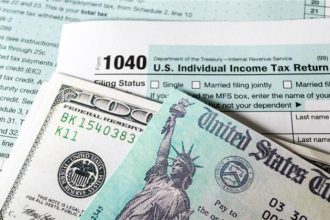THIS POST MAY CONTAIN AFFILIATE LINKS. PLEASE SEE MY DISCLOSURES. FOR MORE INFORMATION.
A successful retail store goes beyond offering quality products and exceptional customer service.
In today’s competitive environment, retailers face constant challenges that can impact security and profitability.
Maintaining a safe, profitable store is essential for building a resilient business, from theft prevention to effective financial management.
Balancing protection and profitability requires a proactive approach. Implementing strategic measures helps guard against potential risks and sets the stage for steady growth.
The following twelve tips provide a roadmap to safeguarding your store while enhancing its bottom line, helping you achieve long-term success in a dynamic market.
#1. Conduct a Comprehensive Security Assessment

Assess your store’s current security to start with a solid foundation.
Walk through the store as if you were a customer, and then again as a potential thief.
Note potential vulnerabilities, such as unmonitored entry points or hidden areas.
Conduct regular assessments to stay current on any changes that might create new risks.
A thorough security review is essential for identifying and addressing these weak spots.
#2. Invest in a Reliable Security System
Today’s security technology provides practical solutions for protecting your store.
Invest in high-quality equipment that meets your store’s unique needs, from surveillance cameras to alarm systems.
Surveillance cameras, for example, help deter theft by increasing the risk of getting caught.
Motion sensors, especially when combined with alarm systems, add another layer of protection.
Many modern security systems also offer remote monitoring, allowing you to check on your store from anywhere.
The right system can be a powerful deterrent against theft and damage.
#3. Secure Your Inventory with Smart Storage Solutions
Many retailers need help with shrinkage problems.
One way to address this is by organizing and securing your inventory.
Use sturdy shelves and secure cabinets for high-value items, restricting access to these areas.
Make sure only trusted employees can handle sensitive or valuable inventory.
Controlling who has access to stockrooms and storage areas can reduce the risk of internal theft and loss.
#4. Train Employees on Security Protocols


Your staff plays a crucial role in maintaining store security.
Train them on basic security practices, including handling suspicious behavior, securing cash at closing, and following emergency procedures.
Employees should feel empowered to act on their instincts if they suspect someone may be shoplifting.
Training shouldn’t be a one-time event. Provide regular refresher sessions to ensure everyone is aware of updated security protocols.
#5. Optimize Store Layout for Visibility
Store layout can influence both security and customer experience.
When designing your store layout, aim for clear sightlines from the checkout area and limit blind spots.
Open spaces can deter shoplifters, as they’re more likely to be seen.
Additionally, high-value items should be placed in the regions easily monitored by staff.
A strategic layout not only helps prevent theft but also improves the overall flow of your store.
#6. Use Point-of-Sale (POS) Security Features
A secure point-of-sale system is crucial for both profits and protection.
Ensure your POS system has security features like permissions for different employee roles, transaction monitoring, and daily reconciliation.
By setting up individual user logins and monitoring transactions, you can easily spot and address suspicious activity.
A well-protected POS system helps reduce fraud risk and improves overall financial control.
#7. Ensure Your Store is Well-Lit
Lighting is a simple yet effective way to enhance security.
Keep both indoor and outdoor areas well-lit to deter potential thieves.
Exterior lighting, especially near entry points, reduces the risk of break-ins after hours.
Ensure all areas are adequately lit inside the store so employees and customers have clear visibility.
Energy-efficient options like LED lights can keep your store bright without increasing energy costs.
#8. Protect Your Store with Comprehensive Insurance


Every retailer should have business insurance to cover risks specific to their industry.
Essential policies like insurance for commercial property, liability insurance, and theft coverage are must-haves for protecting your store against unforeseen events.
Adequate insurance coverage can provide financial support for recovery during a break-in, theft, or natural disaster.
Discuss options with an insurance professional to ensure you have policies tailored to your store’s unique needs.
#9. Implement a Cash Handling Policy
Effective cash management is critical for preventing theft.
Limit the cash in registers at any given time and use safes to secure more significant amounts.
Set a daily deposit schedule and consider using a secure transport service for added security.
Reducing the amount of cash on hand can lower the chances of theft and make your store less of a target for break-ins.
#10. Use Anti-Theft Tags and Labels
Anti-theft technology like RFID tags and magnetic labels can deter shoplifters and make it easier to recover stolen items.
Attaching these tags to high-value products creates a visible deterrent that can prevent theft.
Additionally, these tags activate an alarm if an item leaves the store without proper checkout, helping you catch potential shoplifters.
#11. Regularly Review Financials to Identify Red Flags


Monitoring your store’s finances is essential for spotting irregularities that could signal theft or poor cash management.
Review profit margins, shrinkage reports, and inventory levels regularly to identify unusual trends.
Periodic audits can help you detect and address issues before they become significant problems.
Staying on top of your financials ensures your profits and assets are well-protected.
#12. Build Strong Relationships with Local Law Enforcement
Establishing a relationship with your local police department can increase your store’s security.
Many police departments offer security consultations and can provide valuable advice on improving your store’s safety.
Some departments may even provide routine patrols or community programs aimed at helping local businesses stay secure.
Being on good terms with law enforcement can also ensure a faster response if any incidents occur.
Read the full article here














